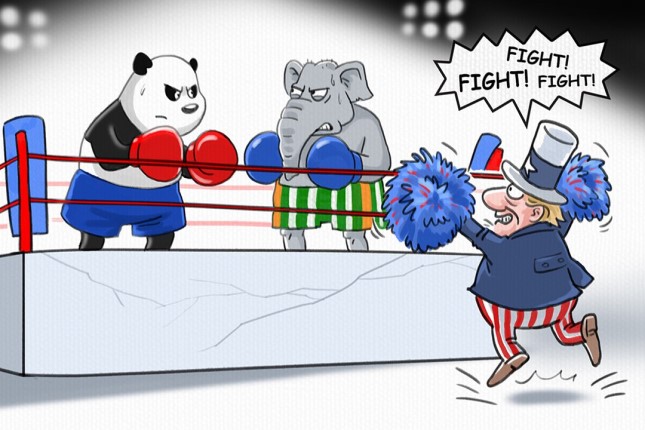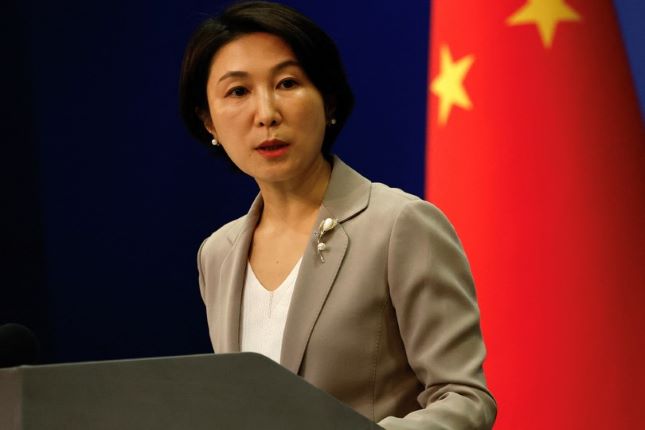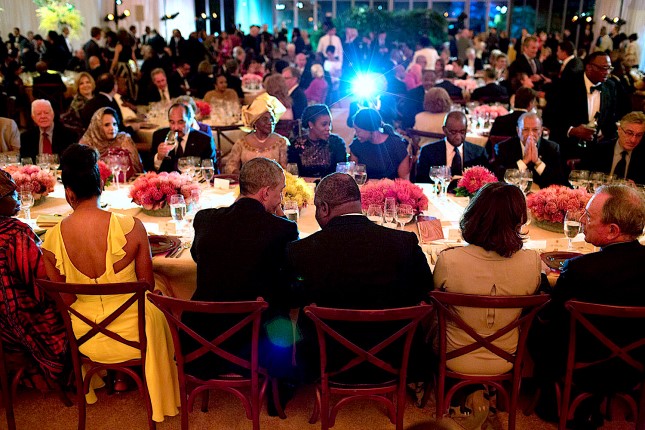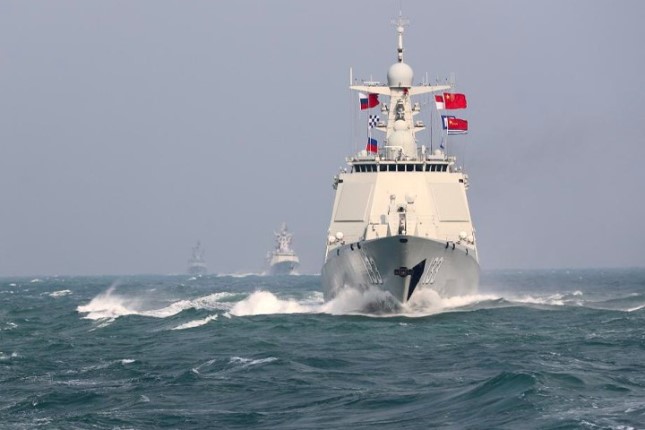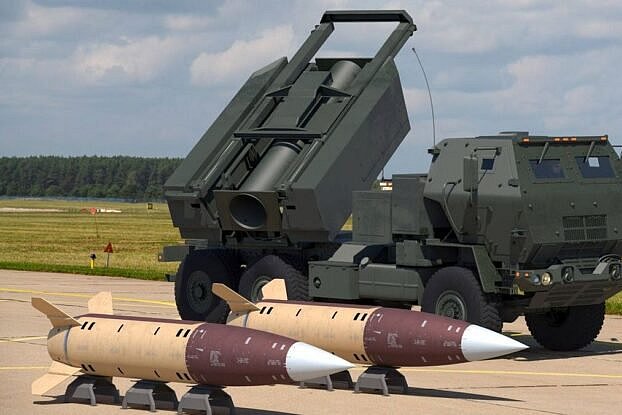The US has been ramping up efforts to rope in India to play a bigger role in its so-called Indo-Pacific Strategy clearly aiming to contain China, as proven in the latest move in which Washington's top envoy to East Asia Daniel Kritenbrink proposed building a greater US-India partnership over issues concerning the South China Sea.
However, there are concerns that India, as an external force outside the South China Sea, would only complicate the situation and jeopardize the hard-won stability and peace by increasing their footprint in the region, analysts said on Thursday.
The US and India declared themselves "among the closest partners in the world" last week, during a state visit to Washington by Indian Prime Minister Narendra Modi.
Following Modi's visit, Kritenbrink told Washington's Center for Strategic and International Studies think-tank on Wednesday that there would be greater collaboration among a group of regional powers - the US, India, Japan and Australia - known as the QUAD grouping of countries, and nodded yes when asked whether India would have a growing role in the South China Sea and greater cooperation with the US across the region, according to media reports.
"We will welcome cooperation with any country that embraces that vision. That of course includes India," Kritenbrink said.
There is indeed a trend of India increasingly leaning toward the US, as India considers its increasing influence and footprint not only in the Indian Ocean but also in the South China Sea and Pacific Ocean, Qian Feng, director of the research department at the National Strategy Institute at Tsinghua University, told the Global Times.
But it should not be interpreted as India's acceptance of becoming a strategic vassal of the US like Japan, Qian noted.
As the US considers India a counterweight to China, an indispensable part of its Indo-Pacific Strategy, Washington is investing great efforts to make Delhi into its circle of alliance or at least make it a quasi-ally, even sharing its technology to reach their strategic aims, Song Zhongping, a military expert and TV commentator, told the Global Times on Thursday.
The US has unveiled agreements to sell weapons to India and share with it sensitive military technology during Modi's US visit, which media said come with a clear subtext of countering China's development and pulling New Delhi away from reliance on Russia for military supplies.
However, as India considers itself an increasing power in Asia with strategic autonomy upholding self-interested diplomacy, India is reluctant to become an US pawn, nor so-called ally, but to act as an equal partner, Song said.
India's navy said on Wednesday it was sending an active duty missile corvette to Vietnam as a gift, the first warship it has given to any country.
Still, Song warned that India's recent moves to sell weapons systems to nations located near the South China Sea is a disturbing trend and bringing about new risks to the region, citing India's sale of BrahMos supersonic cruise missile to the Philippines last year and a reported deal of three to five units of BrahMos missiles to Vietnam as examples.
We oppose all countries outside the region intervening to stir up the situation in the South China Sea, because this will inevitably increase the complexity and uncertainty of the situation, and affect the stability and prosperity of the region, Qian said.
Chinese analysts said it would be overstretching for India to get involved in the South China Sea issues given its insufficient military strength and its limited number of warships, but that indirect arms sales and military assistance to the regional countries is also concerning.
India is playing along with the US in the South China Sea only to earn immediate benefits such as winning advanced technology and investment; however, it is losing its strategic balance in the process and drifting away from its intent to earn its status as an independent world power, they warned.
Photo: With an undisguised glee, Uncle Sam is nudging India into further spats with China © GT.
Source: The Global Times.
